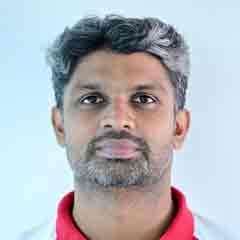Who to blame? 11-year ordeal without trial for mentally-challenged POCSO case accused

Mail This Article
A week ago, a 39-year-old Arun Raghavan who was an accused in a POCSO case, was acquitted by the Additional District and Sessions Judge-1, Kottayam. When the court delivered the verdict, Salila, mother of Arun sat still, her hands folded in prayer, eyes closed. The acquittal came after eleven years. It came after the accused, a mentally-challenged man, had been subjected to repeated psychiatric evaluation, which would finally pronounce him fit to stand a trial. It came after his mother had gone through years of suffering, pain and shame. The accused didn't speak much, except to himself. He didn't know what was said, he hadn't known what was done to him years ago. His mother didn't speak either, just sighed, as though she had found a rare calm in silence from what seemed like an unending torment.
Her son was free, finally
She had cried so much till that day that she didn't cry the day the verdict came. ''Why would I? Any mother would do the same for their children, right. It was my duty to protect him. How would he have survived in jail, even the thought killed me,'' Salila said.
The case dates back to 2013 when Kaduthuruthy police registered a case under POCSO. A woman had complained that her son was being subjected to unnatural sex when he returned from school. Her complaint listed four names -- three minors and then 28-year-old Arun. He was named fourth among the accused. The victim was a 11-year-old boy. The charge was that the minor was subjected to unnatural sex in a rubber plantation several times. In his statement to the magistrate, the victim said he was beaten up when he refused to obey and he was forced to steal money from home and give to the four accused.
The fourth accused in the case had 'marked verbal and non-verbal impairments, serious difficulty in interacting with others', his mental condition report would read. The police pressed charges against four of them based on the first information statement (FIS) given by the victim's mother. Within a year, the three minors were let off following an out of court settlement but the agony had just begun for Salila and her son.
A daily-wage labourer in a paddy farm, Salila skipped work to take her son to court to get bail, which would be renewed. During the initial phase of the case, the court ordered that trial would be done when Arun was declared fit for one. She would stay with her son in ward number 4 of Government Medical College, Kottayam, for weeks where doctors would evaluate him and submit a report on his mental condition. She hoped that her son would stand trial and prove his innocence. It didn't happen. Court, summons, cops, bail, hospital -- life played out in an endless loop, mundane and merciless.
Salila also had to take care of her husband, an ailing man who sells lottery tickets. Her two elder sons were helpful, but Salila didn't want to bother them much. ''I brought them up away from bad company and telling them they should earn good jobs, and thankfully they did. When this thing happened to my youngest son, I knew it was upon me,'' she said.
She changed jobs and started doing doorstep sale of clothes to meet the legal expense. Often she wished she could talk to her son about what was going on. He would either scribble figures from the calendar onto a paper or hold a broken phone to his ears and speak in broken, unclear words. When he was free to move around, he would sit in the front row of the pew in two churches nearby, attending prayers, mostly funeral prayers. At one point, summons stopped coming. There was no more the discomfiting sight of cops turning up at the doorstep.
The advocate who handled the case initially had assured Salila that there was nothing to worry any more. It seemed the ordeal was over and then the summons surfaced again. ''It was my breaking point. I felt like ending my life. I was told that my son had to live like this till he was dead, turning up in court like a criminal. My brothers gave me confidence and I continued my fight,'' she said.
Advocate P Rajeev, who later took up the case, said there were procedural flaws right from the onset. ''The statement given by the minor (the complainant's son) clearly says Arun didn't do it. The cops rushed to file a case based on the first information statement and charge him without even doing a preliminary inquiry. The main challenge was that there were grounds to prove his innocence, but without a trial it wasn't possible,'' said Rajeev.
After repeated rounds of evaluation, the latest report came in his favour and Arun was ready to stand trial. ''During the trial, the mother of the survivor told the court that the police did not read out the statement to her and she hadn't given Arun's name in the complaint. The victim told the court that his initial statement to the police made no mention of Arun and he was prodded by the police to include his name in the statement given to the magistrate,'' said Rajeev.
The judge ordered the acquittal on June 28 after considering that there was no evidence that the accused committed the offence. ''I know there isn't much life left for my son given his condition. I am grateful to God that he is no more branded an accused in a case. I never wanted to settle this case in any other way, because that would have meant my son would live and die as a criminal. I got debts to clear and I would have to work even harder now,'' said Salila.


